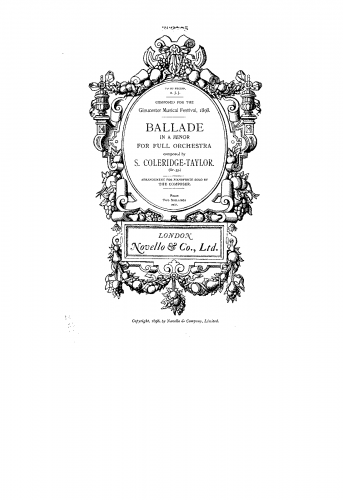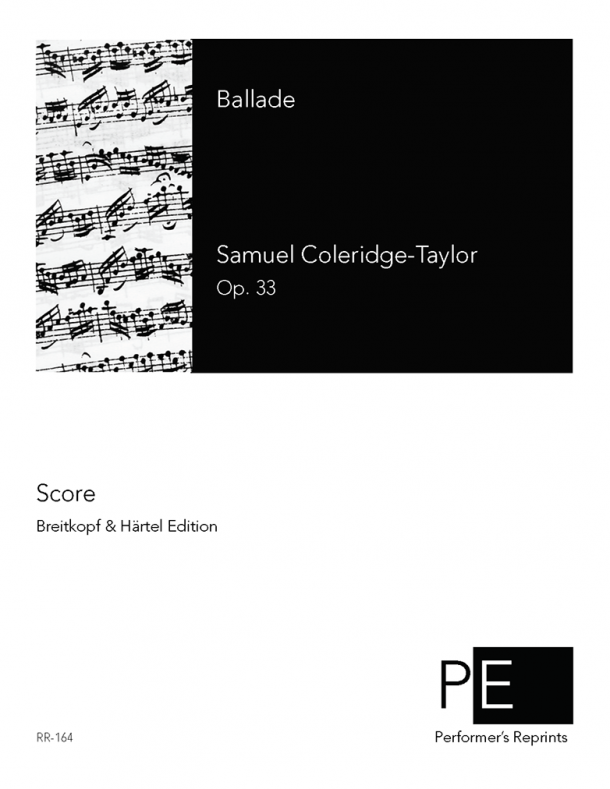Obscure Music Monday: Coleridge-Taylor's Ballade Op. 33
Samuel Colderidge-Taylor (Aug. 15, 1875 - Sept. 1, 1912) was born in London, England, to Alice Hare Martin, an English woman, and Dr. Daniel Peter Hughes Taylor, from Sierre Leone. They were not married, and Daniel Taylor returned to Africa before 1875, not even knowing he had a son. Martin named her son after the poet, Samuel Taylor Coleridge, and was raised in Croydon, Surrey by his mother, and her father. Coleridge-Taylor studied violin at the Royal College of Music, and was later on appointed a professor at the Crystal Palace School of Music, and conducted the orchestra at the Croyden Conservatory. Coleridge-Taylor found success at the Three Choirs Festival in Gloucester and Worcester; he was recommended by Edward Elgar, who heard rave reviews about Coleridge-Taylor from noted music critic and editor August Jaeger. He had much success during his time, and his interest in African-American culture brought him to the States on several occasions where his success continued. He made such an impression that he was invited to the White House by Theodore Roosevelt.
Coleridge-Taylor was a prolific writer; he composed chamber music, choral works, songs, and several orchestral works, including his Ballade Op. 33. Commissioned by the Three Choirs Festival of Britain in 1898. It's an energetic and vivacious work right from the get-go. About two and a half minutes in to the work, the spirited piece takes a detour in to a lush and sweeping romantic theme. The work returns to the same energy exhibited at the beginning a couple minutes later and picks up intensity. Throughout the work, Coleridge-Taylor's brilliance is clear; his ideas on orchestration and creating and shaping melodic lines are well-developed, and it's unsurprising that he was given the nickname of "African Mahler." It's a shame his works aren't played more often--he truly was a brilliant composer.
Here's a recording of this fantastic work for you to enjoy!
Royal Liverpool Philharmonic Orchestra



